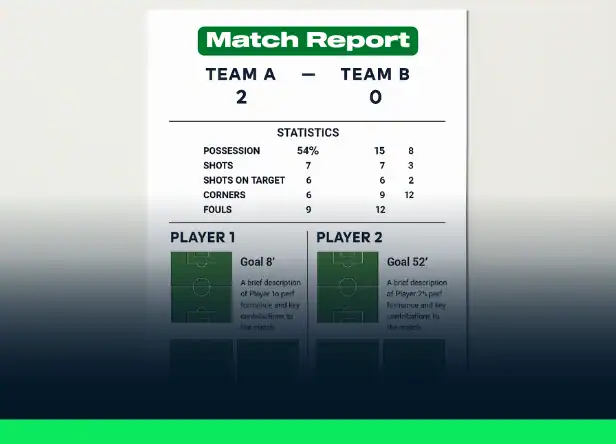Do you know how much a soccer scout makes? In the United States, the base income of a soccer scout usually spans from $26,000 to $50,000 annually; nevertheless, experienced experts at major teams might make over $150,000. Total compensation is driven mostly by bonuses, club reputation, and proven talent-spotting ability.
If you’ve been looking into this job for a while now then our training program to become a soccer scout is designed to give you all the knowledge and professional skills you need to succeed in this career.
How Much Does a Soccer Scout Make?
Before laying out your long-term career path, you must know the market rate for a soccer scout’s compensation both in the United States and throughout the world. Although game passion is essential, often the pay determines whether you can support a full-time job.
Most of the time, a soccer scout makes between $26,000 and $50,000 yearly. However, top-tier companies and seasoned scouts command considerably more pay. Performance-based bonuses, such as discovering prizes for unearthing top-impact talent, will also be part of your overall earnings.
Salary Benchmarks
Are you thinking about becoming a scout? Then you need to know — and yes, we’re repeating this for a reason — your salary will vary over time, and even from month to month. A scout’s income depends on many factors, and part of it often comes from bonuses related to successful player recruitment.
| Job Title | Typical Annual Range | Main Source |
|---|---|---|
| Soccer Scout (national) | $26,000 – $48,000 | ZipRecruiter (2025) |
| Experienced Pro Scout | $26,000 – $159,000 | PayScale (2025) |
| Sports Scout (all sports) | $38,970 | Bureau of Labor Statistics (BLS) 2023 |
At the beginning, salary differences between scouts can be quite stark. To maximize your chances of starting off with decent pay, it’s recommended to complete a training program.
Why does a Scouting Course matter?
Since there are no university degrees particularly in soccer scouting, industry-recognized training courses provide evidence of your capacity to identify and assess talent. A regular course will help you learn:
- Player Evaluation Methods: Thorough systems for evaluating psychological, physical, and technical characteristics.
- Data-driven analysis: Combining video analysis with indicators to help live scouting reports.
- Networking: For establishing contacts with agents, club leaders, and regional coaches helps you build your network.
Completing such a program can provide a starting income at the higher end of the range and quicken your entry-level possibilities.
How Does a Soccer Scout’s Salary Evolve? Key Factors Influencing a Scout’s Salary
As mentioned earlier, a soccer scout’s salary depends on several key factors. Here they are:
Track record and experience
A veteran scout with ten years of demonstrated signings demands top pay. Clubs cover a track record of finding hidden gems and transforming them into first-team contributors.
Club Prestige and Budget
Organizations with high revenues spend aggressively on their worldwide scouting system. Often 25–50% more than peers at lesser-division teams, a scout at a top MLS franchise or elite European club earns.
Bonus performance and Discovery
Performance is about quality, not just volume. Securing contracts for players who go on to provide substantial transfer fees or competitive success opens bonus tiers and renewal premiums.
Earning a Better Salary as a Junior Scout: Focus on Experience and Performance
As a junior soccer scout, the salary you earn early on might not match your expectations. But don’t get discouraged — keep your head up!
We, at SoccerEDU laid out the three key factors that mostly influence a soccer scout’s pay. Two of them can be worked on before you even sign your first professional recruit! To do that, completing a training program is essential, and it will provide the opportunity to have:
- Experience: It can be gained even before officially working as a scout. The right training will give you hands-on practice, opportunities to interact with professionals, and immersion in the world of scouting.
- Bonus performance and Discovery: Performance is about quality, not just volume. Securing contracts for players who go on to provide substantial transfer fees or competitive success opens bonus tiers and renewal premiums.
- Performance: The many techniques you’ll learn for scouting players, recruiting strategies, and tips for spotting top young talent during training will give you a competitive edge over others who skipped formal training.
Maximizing Early-Career Earnings
Past performance
Top compensation is demanded by a ten-year proven veteran scout. Clubs have a history of locating diamonds in the rough and turning first-team contributors.
Club Prestige
High-revenue companies invest heavily on their international scouting program. A scout, when works at a major MLS franchise or European club often earns 25 to 50% more than peers at lower-division teams.
What Are the Career Opportunities for a Soccer Scout?
A scout’s advancement isn’t linear but depends on the breadth of scouting competencies and complementary skill sets developed over time:
The more tools a scout has — game knowledge, a solid network, tactical analysis, global soccer culture — the more indispensable they become to a club or technical staff.
| Role Transition | Core skill developed | Potential Next Position |
|---|---|---|
| Talent Spotter → Pro Scout | Advanced tactical analysis | Head of Scouting at mid-level club |
| Scout → Recruitment Analyst | Statistical modeling & database management | Director of Recruitment Analytics |
| Scout → Player Agent | Contract negotiation & network expansion | Licensed Player Agent |
| Scout → Coach/Academy Lead | Youth development methodologies | Academy Director or First-Team Coach |
Continual learning—through UEFA coaching badges, advanced data science certifications, or video scouting workshops—broadens your career options within the soccer ecosystem.
Video Analysis
Many scouts get trained in video tools and tactical analysis to deliver more in-depth reports and back up what they’ve seen live with concrete data.
Data Analysis
Data is becoming increasingly vital in professional soccer. A scout who can work with stats and performance data is well-positioned to move into roles like data analyst, performance lead, or recruitment analyst.
Becoming a Player Agent
Knowing young talent, having a large contact list, and understanding club needs are all key assets for transitioning into the role of a player agent.
Coaching
Some scouts — either because of a passion for development or after getting licensed — choose to pursue coaching roles or work in youth academies.
Global Perspectives: U.S. vs. Europe vs. Emerging Markets
The table illustrates the salary prospects for soccer scouts in the United States, Europe, and emerging markets:
| Région | Entry level range | Senior level potential | Compensation Drivers |
|---|---|---|---|
| United States | $26,000 – $40,000 | $60,000 – $100,000 | MLS growth, college soccer partnerships |
| Europe | €30,000 – €45,000 | €70,000 – €159,000 | Transfer market revenues, club-owned academies |
| Emerging Markets | $50,000 – $80,000 | $50,000 – $80,000 | Developing leagues, federation programs |
Total Compensation: Beyond Base Salary
- Up to 20–30% of base salary for players who meet certain appearance or transfer criteria, performance bonuses
- Clubs usually pay for flights, lodging, and per diems for domestic as well as foreign scouting excursions.
- Profit-sharing agreements on player sales can provide notable upside over time as long-term incentives.
A Scout’s Career Path: Always Keep Learning
Ultimately, a scout’s growth depends on their willingness to learn and diversify. Those who continually improve their knowledge and add new skills will find exciting opportunities open up — whether that’s in scouting, analytics, agency work, or coaching.
A soccer scouting career mixes analytical aptitude and relationship-building with love of the game. Though entry-level scout base salaries might seem low, the mix of bonuses, club prestige, and proven talent spotting turns this job into a very lucrative one.
To speed your income:
- Learn industry-standard tools and methods by registering with a well-regarded scouting program.
- Volunteering or interning with clubs helps to establish a proven track record.
- Include data-driven scouting and video in your analytical toolset.
Through constant improvement of your skills and provision of superior prospect recommendations, you will put yourself in the running for the most lucrative pay in the soccer business.





